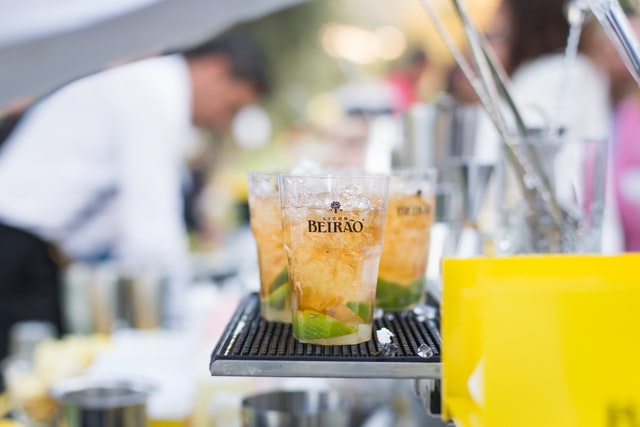Mobile Alcohol Sales Are (Mostly) Not Permitted in Florida

Imagine a business–call it Mobile Bar–that brings the bar to you. You hire Mobile Bar for a reception, party or other event held at your home, office, or other private property. Mobile Bar has a cool, old trailer, truck, or standing bar that it brings to your location. Mobile Bar handles buying all the beer, wine and liquor and bringing it to your event. Mobile Bar provides the bartender, who hands out beer, pours wine, and mixes cocktails. This is a cash bar, so Mobile Bar handles the sales too. Mobile Bar sounds great, right? You might have even seen Florida businesses that provide this exact same service.
Here’s the problem: Mobile Bar, and mobile alcohol vendor services like it, are not legal in the State of Florida.
The Florida Beverage Laws do not support independent, mobile alcohol sales. In other words, there is no license available in Florida that allows the licenseholder to sell to the general public primarily beer, wine or liquor, whether in sealed containers or by the drink, from non-fixed locations, whether on public or private property. And selling alcoholic beverages without a license is a crime in Florida (See Florida Statutes Section 562.12).
Mobile Alcohol Sales Have a Place Problem
The Florida Beverage Laws (Florida Statutes Chapters 561-565) make it clear that no person or company can sell alcoholic beverages without a license. Two criteria are primarily important to getting a license: the licensed individuals and the licensed premises.
First, all of the individuals who will be involved in owning or managing an alcoholic beverage business must be identified an provide information about themselves (see Identifying the Interested Parties of a Florida License Applicant).
Second, the location where alcohol will be sold and consumed–the licensed premises–must be identified and described in detail. The Florida Beverage Laws and regulations require that the premises be suitable for selling alcohol, including compliance with local zoning ordinances. Also, the licenseholder must show that it has legal control over the licensed premises, at least while alcohol is being sold and consumed. This means that the licenseholder must own the premises, have a lease to the premises, or have some other contract giving the licenseholder control over all sales and consumption of alcohol on the premises. The Florida Beverage Laws will only grant the right to sell alcohol to the individuals who can control its consumption in a specific place and only if local laws allow alcohol to be sold in that place.
These location-specific licensing requirements are in most cases at odds with the purpose of a mobile bar service–to provide limited alcohol sales, on private property, for events organized by someone else. To be clear: the Florida Beverage Laws do not prohibit renting a cool old truck, trailer, or standing bar for use by a private party giving away alcohol at a hosted event. But that’s a much different business model than mobile alcohol sales. When it comes to selling alcohol in Florida, the location matters a lot.
If Mobile Bar’s business is centered on selling alcohol at places that are not approved for alcohol sales, then it’s a business that does not work under the Florida Beverage Laws.
Some Limited Exceptions
Of course, there are exceptions to every rule, including the Florida Beverage Laws’ prohibition on mobile alcohol sales. There are some licenses available that do allow services mobile alcohol sales, for instance alcohol catering by a quota licenseholder (see Alcohol Catering with Florida Quota License) or licensed alcohol caterer (see Working with Beverage Caterers). But the limitations on these exceptions are significant and put them in a much different business model than our fictional Mobile Bar describe above.
The following table briefly describes the most relevant “exceptions” to the Florida Beverage Laws’ prohibition on mobile alcohol sales and the limitations on those exceptions. See the Florida ABT’s Licenses and Permits for Alcoholic Beverages for a complete list of available licenses.
| Exception (License Class) | Limitations |
|---|---|
| Food Caterers (13CT) | Only available to licensed food caterers; must derive at least 51% of food and beverage revenue from sales of food and non-alcoholic beverages; sales of alcohol only permitted at events the same caterer is providing food catering |
| Quota License Holders (QUOTA) | Only limited number of quota licenses are available per county |
| Temporary Permit (ODP) | Only available to bona fide non-profit organizations or municipalities; limited to 12 permits per year for events not exceeding 3 days at a time |
| Public Fair (FEX) | Only available to organized public fairs and expositions in connection with events held on the fairgrounds |
| Mobile Vehicles (X) | Sales permitted only to passengers; vehicle must be engaged in interstate commerce or travel between fixed terminals and on a fixed schedule |
Do you have any questions about mobile alcohol sales in Florida? Contact us to schedule a consultation with a beverage attorney.
Because we’re attorneys: Disclaimer.


